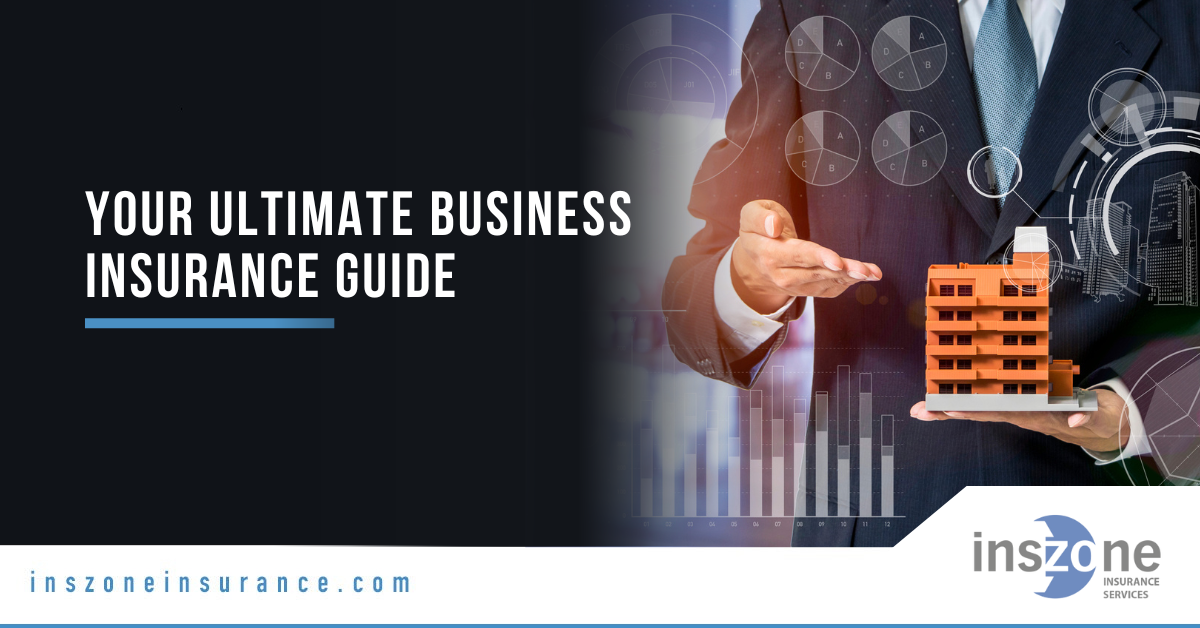Every business has a custom insurance program because every business has different needs. Business insurance can seem like another language, but there are a few questions you should ask yourself to help determine what would best protect you and your business against your unique risks.
Do You Operate a Business?
The mere fact that you are reading this means the answer to this question is likely yes. The first policy that all businesses should purchase when it comes to protecting themselves and everything, they’ve worked so hard for is:
General Liability Insurance (CGL)
From a one-man show to an entire empire, all businesses should have general liability. General Liability protects and defends your business in the event of a claim against you, your employees or your products or services up to your policy limits.
Business Liability Insurance Can Help Your Business If:
- You accidentally damage a customer’s property while on the job.
- A customer slips and falls and gets injured at your business.
- Your business gets sued for slanderous comments you made about a competitor in an interview.

Does Your Business Have Property or Equipment to Protect?
Unless your entire business runs on your personality and know-how, like a business coach for example, you likely have property that you own or rent and some level of equipment that you use.
Commercial Property Insurance
If you own your building or have business personal property, such as office equipment, computers, inventory, or tools, you should think about including coverage on your policy that will cover you in the event of a fire, vandalism, theft, smoke damage, or other disaster. You might also want to add business interruption/loss of earnings protection in your policy to cover your loss of earnings in the event that your company is unable to function.
Business Interruption Insurance
Business interruption insurance is a form of business property insurance that provides money to pay for loss of income because of a covered loss.
Do You Have Employees?
From 1 to 1,000, a business that employs others has a different set of risks. There are certain coverages that are required, and others that are helpful additions to your insurance program.
Workers’ Compensation (Required)
Workers’ compensation provides insurance to employees who are injured on the job. This type of insurance provides wage replacement and medical benefits to those who are injured while working. As a business owner, it is very important to have worker’s compensation insurance because it protects yourself and your company from legal complications. State laws will vary, but most states require you to have workers compensation if you have W2 employees. Penalties for non-compliance can be very stiff.
Employment Practices Liability Insurance (EPLI)
Employment Practices Liability Insurance (EPLI) is an insurance policy that protects your business against employment-related lawsuits.
- What Is EPLI?
- EPLI provides financial protection against employment-related claims, including wrongful termination, discrimination, harassment, and workplace torts.
- It’s essential due to federal, state, and local employment laws.
- Coverage Areas:
- Sexual harassment
- Wrongful discipline or demotion
- Wrongful termination
- Slander or libel
- Discrimination based on age, gender, religion, race, or other protected classes
- Breach of employment contracts
- Privacy invasion
- Emotional or mental distress
- Negligent decisions related to hiring, promotions, or compensation
- FAQs:
- Is EPLI the same as workers’ compensation?
- No. Workers’ compensation covers work-related injuries, while EPLI focuses on employment practices claims.
- How does EPLI differ from errors and omissions coverage?
- Errors and omissions (professional liability) doesn’t cover employment-related lawsuits.
- What about directors and officers (D&O) coverage?
- D&O insurance is narrower and protects directors and officers from position-related decisions and actions.
- Is EPLI the same as workers’ compensation?
Remember, EPLI safeguards your business from costly legal battles. Let’s go over each point:
What Does EPLI Cover?
- Retaliation: Taking a negative action toward a person in response to a protected action or a decision they’ve made. Example – if an employee is terminated for telling a government agency about illegal activity at your company.
- Sexual Harassment: Workplace sexual harassment is defined as “unwelcome sexual advances, requests for sexual favors, and other verbal or physical conduct of a sexual nature.” Example – a joking comment that is sexually descriptive in nature with an employee.
- Discrimination: Making improper or illegal decisions regarding a person’s compensation, promotion or hiring. Example – if an unqualified job applicant is hired because they’re the boss’ daughter.
- Wrongful Termination: Giving a person an inaccurate, unfairly low or excessively negative performance evaluation. Example – if you make up a false incident report about an employee on a review.
- Wage and Hour Claims: URGENT – Coverage for wage and hour claims is not included by most policies. Please contact our business insurance team for more details.
Group Health Benefits
Group health benefits include medical insurance for employees or members of a company or organization. A group health insurance plan typically provides health insurance coverage to its members at a lower cost since the risk to health insurers is spread across the members of the group health plan.

Do You Provide a Service?
Any professional firm including lawyers, accountants, consultants, notaries, real estate agents, hair salons and technology providers, just to name a few, should consider an additional form of insurance.
Professional Liability Insurance
Professional Liability Insurance, also known as Errors and Omissions Insurance, is a policy that provides defense and damages for failure to or improperly rendering professional services. Your general liability policy does not provide this protection, so it is important to understand the difference. Depending on the profession, professional liability insurance may have different names, such as medical malpractice insurance for the medical profession, and errors & omissions insurance for real estate agents.
Do You Sell a Product?
Product Liability Insurance
Product liability insurance can help cover your legal expenses if someone claims that a product you sold, made, or distributed caused an injury or property damage. If you sell, make, or distribute products, you need this policy.
If that product allegedly hurts someone or damages their property, product liability coverage will help pay your legal fees, judgment, or settlement. Anyone can sue over damage from a product, even if they didn’t buy it or use it.
A product liability policy is also crucial for construction and contracting businesses. It offers financial protection when a client sues over a personal injury or property damage related to your completed work.
Other Essential Business Insurance Policies
Commercial Auto & Hired/Non-Owned
A commercial auto insurance policy protects a company’s vehicles. You can insure your company vehicles for liability, comp, collision and more. If you don’t have company vehicles, but employees drive their own cars on company business you should have a non-owned auto liability policy to protect the company in case the employee does not have insurance or has inadequate coverage. Many times, the non-owned can be added to the BOP policy.

Cyber Security or Cyber Liability Insurance
Every single business is vulnerable to a cyber-attack. When you look at some of the largest cyber breaches, you think of large companies. The names that come to mind are Target, Facebook, Google, Marriott…some of the largest corporations within the US have also suffered some of the largest cyber-attacks. These are companies that invest millions of dollars into cyber security and the procedures implemented to mitigate those losses. With that being said, a small to midsize business owner is still vulnerable to these kinds of attacks. You might consider these questions and more:
- Do you collect sensitive data?
- Are you performing financial transactions?
- Do you have the ability for human-error?
The development of AI has already changed the cybersecurity landscape. AI is being used to detect and prevent cyber attacks. It can analyze large amounts of data to identify patterns and anomalies that may indicate an attack is underway. AI can also be used to automate security processes, such as patching vulnerabilities and updating security policies. However, AI can also be used by attackers to create more sophisticated attacks that are harder to detect. As AI continues to develop, it will likely play an increasingly important role in both cybersecurity defense and offense.
Directors & Officers Liability Insurance
Directors’ and officers’ liability insurance applies to anyone who serves as a director or an officer of a for-profit business or nonprofit organization. A directors and officers liability policy insures against personal losses, and it can also help reimburse a business or nonprofit for the legal fees or other costs incurred in defending such individuals against legal action.
Keep in mind that each company’s insurance requirements are different. It is important that you invest enough time and effort to this subject and purchase the insurance that will best protect you from the hazards that your organization confronts. Let us help you verify that your policy is suitable for you and your needs.





